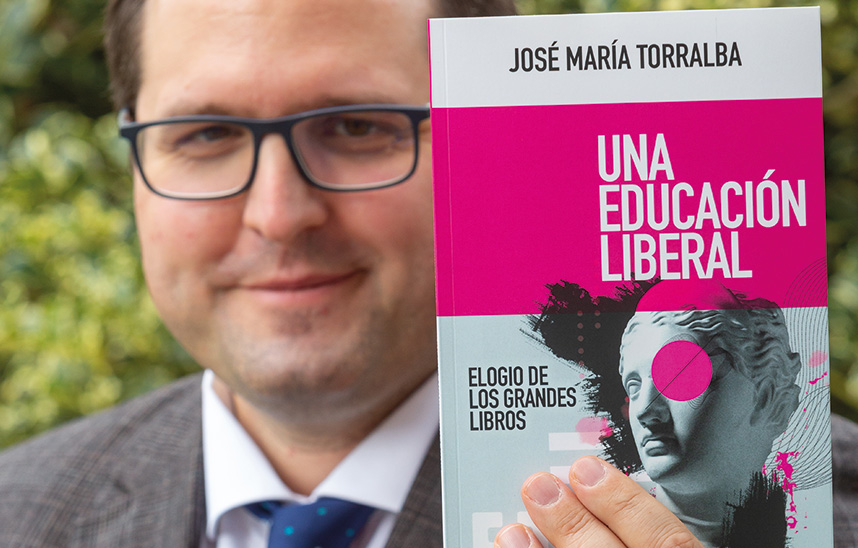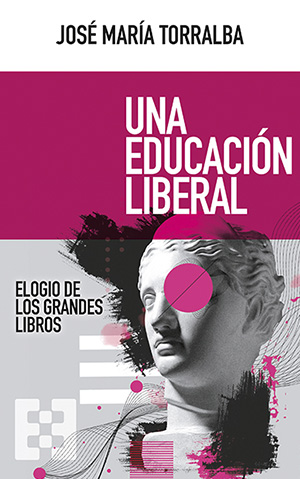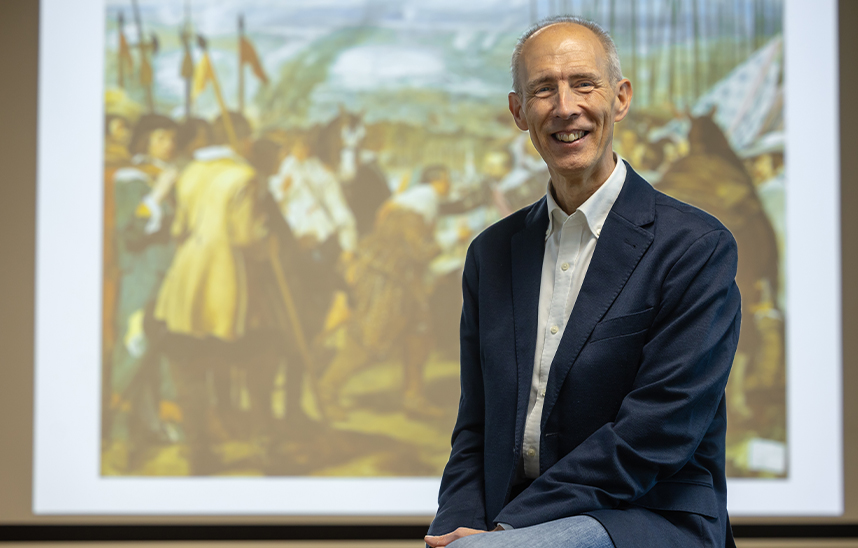José María Torralba publishes the book "Una Education liberal. In praise of great books".

PhotoManuelCastells/
15 | 03 | 2022
José María Torralba, director of high school Core Curriculum and lecturer at Master's Degree in Christianity and Contemporary Culture, has published the book ".A liberal Education . In praise of great books".
Published by Ediciones meeting, the book gathers his experience professor with the great books and puts forward some proposals for discussion educational in our country.
In the following interview, he shares with us some of the key aspects of the work.
Q. Why did you come up with the idea of writing this book?
R. In this book I present what I have learned about humanist Education in the last ten years of work at high school Core Curriculum . The first draft was written during a research stay at the University of Chicago, which is where I first encountered the tradition of Great Books seminars.
This is a vindictive essay : attention to argue why it is necessary - and possible - for our universities to offer a humanistic Education to all students. I try to overcome the prevailing pessimism (which often reaches the point of scepticism) with concrete examples from our university and others in Europe and Latin America. There is a promising movement educational underway in many institutions.
Q. How would you define the liberal Education ?
R. It is one of the names given to Education humanist. Although its origin goes back to the classical world, it is St. John Henry Newman who gives it the sense in which I use it in the book. In a liberal Education the knowledge is not just a means to something else (making a living or solving problems), but an end in itself. The knowledge is valuable because it perfects us as people. Human beings need to cultivate knowledge in order to lead a fulfilling life, and that is why Education is an activity that, properly speaking, never ends. I would add that a Education is liberal when it is not limited to the intellectual training but addresses the whole person: what is now known as Education ethics and character.
P. In your book, you say that you try to avoid falling into hackneyed statements such as " Humanities are very necessary" or " Humanities make us better", what is the message you want to convey with your work?
R. I try to avoid the cliché, but not the idea. I explain that the vindication of the Humanities is not the result of a partial interest, as if those of us who belong to Schools of Philosophy and Letters were doing something more important than other academics. The humanistic perspective in Education includes both the Arts and the Sciences. issue It is not a question of increasing the number of students enrolled in humanistic Degrees (which would be a very good and desirable thing), but that in a university all professors contribute to offering a liberal Education , because it is the best service we can do for young people and for today's society.
Q. Who is the play aimed at?
R. Mainly educators, but anyone interested in the place of Humanities in society will also enjoy reading it. Although the themes of the book belong to the university environment, my great hope is that the proposals of Education humanist that I make reach the secondary and high school levels. high school diploma. This is the decisive moment in the Education of young people and this is where the Humanities can contribute the most.
Q. Why would you recommend reading your book to University faculty and staff?
R. I do not intend to sell honey to the beekeeper. Allow me to be "anti-publicity": the book does not say anything new or original. But it seems to me that this is a clear virtue in educational matters. Part of the ills that currently afflict us come from a misunderstood continuous search for novelty. At Education, the essentials have already been invented. I like a formulation by Full Professor Álvaro Sánchez-Ostiz, to whom this book owes much: in the end, what we always aim to do is to teach how to read (in depth), to write (rigorously) and to argue (convincingly).

